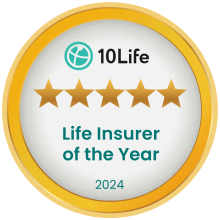OK, you don’t want to be just some tiny cog in a big traditional corporation? And working in a startup or a new industry can offer more flexible, and more challenging work, which sounds far more attractive. So why not give it a try? But compared to interviewing with a traditional company, what do you need to pay attention to?
What is ethical investing?
Ethical investing holds out the possibility of doing well while doing good. But does it work – and how?

Ethical investments, or funds that give you the opportunity to realize financial gains while supporting positive social change, have been gaining momentum. In fact, by early 2014, ethical investing reached an estimated worldwide value of $22.72 trillion CDN. And there is little to suggest that this trend will diminish any time soon.
Curious? Here are three things you should know if you’re planning on shifting your portfolio toward socially responsible, green or sustainable investment choices:
1. What is ethical investing?
Unlike many traditional approaches, an ethical investing strategy does not stop at a company’s bottom line – it also takes into account environmental, social and corporate governance (ESG) factors.
With ethical investing, you might choose a negative screening approach to exclude sectors or companies based on poor ESG performance. Or you could use positive screening, which involves actively investing in companies with high social responsibility scores in areas that matter to you.
The sustainable investment market continues to grow. According to a 2016 report by the Responsible Investment Association (RIA), assets in Canada using at least one responsible investing strategy totaled more than $1.5 trillion CDN – a 49% increase in 2 years.
2. Will ethical investing boost my investment returns?
While there is room for debate, many investors have seen competitive returns when investing with morality in mind.
A 2015 study from Morgan Stanley also had good news. Looking at the performance of 10,228 open-end mutual funds and 2,874 separately managed accounts, the study concluded that sustainable investing strategies generally met and frequently outpaced the performance of traditional strategies.
Socially conscious funds can out-perform traditional funds – which means that you can do the right thing and potentially see strong investment returns as well.
3. Where can I find more information?
Company websites can be a good starting point, but there are many resources to help you determine if your investments actually live up to your ethical criteria.
If you’re a mutual fund investor, for example, you can look at Morningstar’s Sustainability Ratings to evaluate how well funds meet ESG factors and compare ratings for different funds.
If you’re interested in holding SRI stocks, you may want to skim the Corporate Knights Magazine’s Global 100 , an annual list of the world’s 100 most sustainable corporations, which in 2017 includes Sun Life Financial for the 8th year in a row. Or consult the FTSE4Good Index for a list of ethical investing stock market indices and their performances.
Read more: Sun Life named one of the 2017 Global 100 Most Sustainable Corporations in the World
Sarita Harbour, March 30, 2017, What is ethical investing? [Web page] . Retrieved from Canada Sun Life Corporate Website read the article
Information provided above is for reference only, please refer to the Conditions of Use of this site.


![[Be Inspired by Dialogue] A Start-up Founder VS a Working Person, who do you want to be?](/content/dam/sunlife/legacy/assets/hk/Life%20Moments/Starting%20Out/a-startup-founder-vs-a-working-person-icon.jpg)

